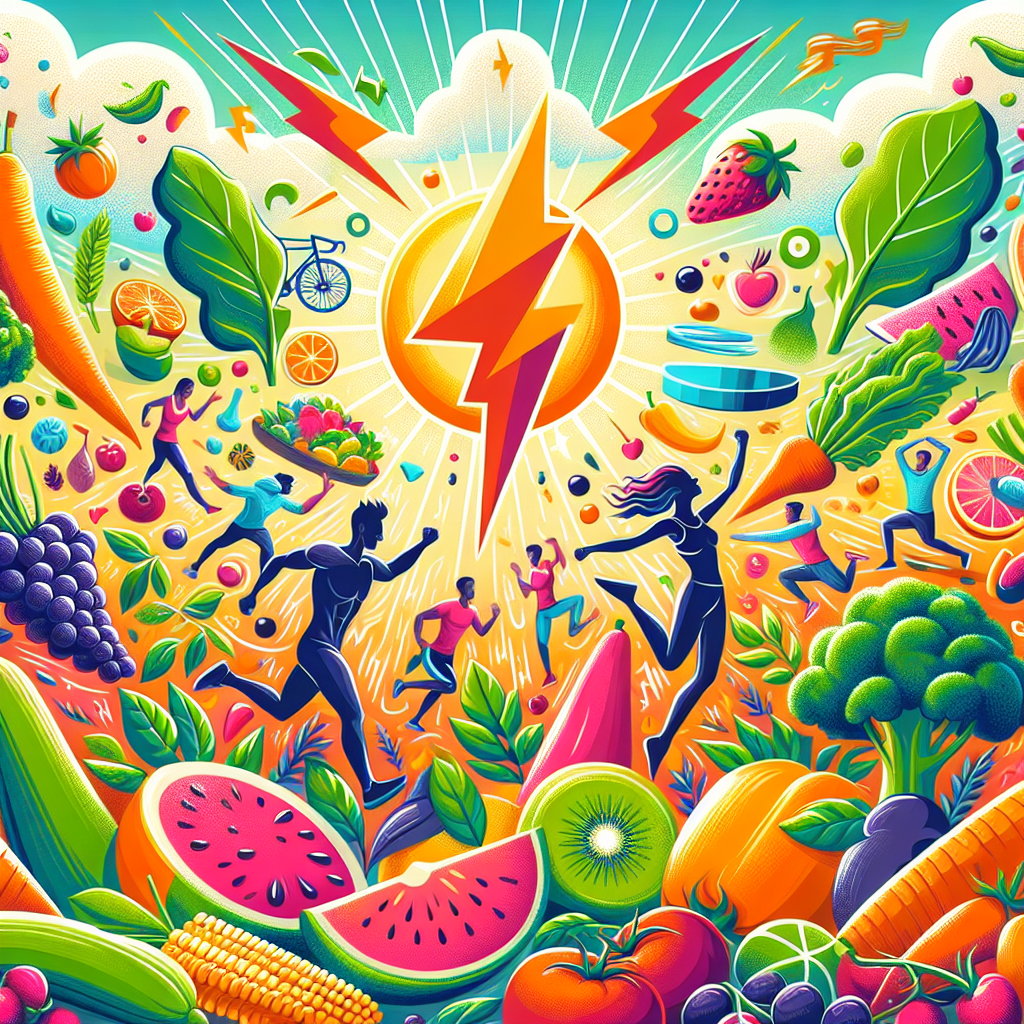Plant-Based Meals for a High-Energy Lifestyle
Understanding Plant-Based Nutrition
Plant-based meals focus on a diet rich in fruits, vegetables, whole grains, legumes, nuts, and seeds. This dietary approach offers numerous benefits, especially for those with demanding lifestyles. A well-planned plant-based diet can provide all essential nutrients, maintain high energy levels, and promote overall well-being.
Key Nutrients for Energy
To support an energetic lifestyle, it’s crucial to incorporate specific nutrients:
1. Complex Carbohydrates
These are the body’s primary energy source. Foods like quinoa, brown rice, oats, and sweet potatoes are rich in complex carbohydrates. They digest slowly, providing sustained energy over time. For example, a breakfast bowl of oats topped with bananas and nuts can fuel an active morning efficiently.
2. Proteins
Plant-based proteins, such as legumes, lentils, chickpeas, and tofu, are essential for muscle repair and maintenance. A protein-packed lunch might include a chickpea salad with mixed greens, avocado, and a squeeze of lemon, ensuring ample energy for the afternoon.
3. Healthy Fats
Incorporating healthy fats from sources like avocados, nuts, seeds, and olive oil can help maintain energy levels. They provide a concentrated energy source and are vital for the absorption of fat-soluble vitamins. A snack of almonds or a smoothie with avocado can serve as a great energy booster.
4. Micronutrients
Vitamins and minerals like B vitamins, iron, calcium, and magnesium are essential for energy metabolism. Foods like leafy greens, legumes, and fortified cereals should be included regularly. For instance, a spinach and kale smoothie can provide an excellent spectrum of micronutrients while boosting energy.
Meal Ideas for Energy
Breakfast
-
Quinoa Porridge: Cook quinoa in almond milk, sweeten with maple syrup, and top with berries and chia seeds. This meal offers high protein, antioxidant-rich fruits, and omega-3 fatty acids for sustaining energy.
-
Avocado Toast: Whole grain bread spread with smashed avocado, topped with hemp seeds and sliced tomatoes or radishes provides a burst of energizing complex carbohydrates and healthy fats.
Lunch
-
Lentil & Vegetable Wrap: Fill a whole grain wrap with seasoned lentils, roasted vegetables, and fresh spinach. This combination provides iron and fiber, ensuring you remain full and energized throughout the day.
-
Chickpea Buddha Bowl: Combine brown rice, roasted chickpeas, broccoli, sweet potato, and tahini drizzle. The balance of protein, carbs, and healthy fats makes this a balanced, high-energy meal.
Snacks
-
Nut Butter Energy Balls: Blend oats, nut butter, honey, and dark chocolate chunks, rolling them into bite-sized balls. These are easy to prepare, portable, and provide a quick hit of energy.
-
Trail Mix: A homemade mix of nuts, seeds, and dried fruit serves as a nutrient-dense option that provides sustained energy.
Dinner
-
Stuffed Peppers: Bell peppers stuffed with a mixture of quinoa, black beans, corn, and spices make for a colorful, nutrient-packed dinner option, providing protein and fiber.
-
Zucchini Noodles with Pesto: Spiralized zucchini tossed with homemade basil pesto and cherry tomatoes offers a low-carb meal filled with good fats and fresh flavors.
Hydration and Energy
Maintaining hydration is as important as meal planning for energy levels. Dehydration can lead to fatigue and decreased performance. The recommended daily water intake varies, but a general guideline is around 3 liters for active individuals. Infuse water with fruits like lemon, berries, or cucumber for an added flavor boost that encourages hydration.
Timing Your Meals
Meal timing can significantly influence energy levels. For high-energy lifestyles, consider consuming:
-
Small, Frequent Meals: Eating every 3-4 hours helps maintain consistent energy levels and avoids sluggishness from large meals.
-
Pre- and Post-Workout Nutrition: Fuel up 30-60 minutes before physical activity with easily digestible carbohydrates. Post-workout, consume protein-rich meals to aid recovery.
Supplements for Enhanced Energy
While a well-planned diet can meet most nutritional needs, some individuals may benefit from supplements:
-
Vitamin B12: Especially important for those following a strict plant-based diet, as B12 is primarily found in animal products.
-
Iron: If you engage in intense training, consider a supplement after consulting with a healthcare provider to ensure adequate iron levels.
-
Omega-3 Fatty Acids: Algal oil is an excellent plant-based source of DHA and EPA if you do not consume enough from flaxseeds and walnuts.
Cooking Techniques for Energy-Dense Meals
To optimize plant-based meals for energy:
-
Batch Cooking: Prepare nutrients in bulk to save time and ensure easy access to energizing meals throughout the week.
-
One-Pan Dishes: Simplify cooking and cleanup by creating one-pan meals that incorporate various ingredients, minimizing the time spent on food preparation.
Community and Support
Connecting with like-minded individuals through local vegan or vegetarian meetups, online forums, or cooking classes can help sustain motivation and introduce fresh meal ideas, fostering a supportive environment that promotes a plant-based lifestyle.
Experiencing Mindfulness in Eating
Practicing mindfulness while eating can enhance the energy benefits of meals. Focus on the experience of eating, savor each bite, and listen to your body’s hunger signals. This approach can prevent overeating and encourage a more enjoyable dining experience.
Making Sustainable Choices
Opt for seasonal and local produce to enhance the flavor and nutritional value of meals. Supporting local farmers not only benefits the community but also promotes sustainability, further aligning with a mindful plant-based lifestyle.
Conclusion
Embracing a plant-based diet can significantly enhance your energy levels, providing a robust foundation for high-energy lifestyles. By focusing on nutrient-rich foods, maintaining hydration, timing meals effectively, and practicing mindfulness, you can enjoy the numerous benefits that come with plant-based eating while feeling invigorated and prepared for daily challenges.
